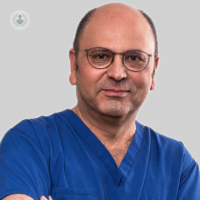FAQs: in vitro fertilisation – part 2
Autore:In vitro fertilisation is a form of fertility treatment that can help women to get pregnant. Dr Benjamin Abramov, a leading fertility specialist, answers some more frequently asked questions about IVF, following on from part one.

What is the success rate for IVF?
The success rate of IVF treatment is age-dependent (mostly female age-dependent). Men's age does play a role, but the role is not as significant. Here are the estimated success rates for each age range after one round of an IVF treatment cycle:
- Under the age of 35 = 40-50%
- Ages 38-50 = 20%
- Ages 43-44 = 3-5%
- Ages 45-46 = 1%
These figures are only relevant for women who have chosen to use their own eggs. If donated eggs are used by older women, the chances of pregnancy are much greater, even if they are age 46 or older.
Does IVF lead to twins and multiple births?
The law in the UK restricts the number of embryos you can transfer to two under the age of 40 and, to three above the age of 40. Obviously, when you transfer two or three embryos, there is a higher chance of conception with twins, and, sometimes triplets or high order multiple conceptions. However, it is important to note that even when you transfer one embryo, the chance that you will end up with twins as a result of the embryo splitting into two and creating identical twins is higher in IVF than it is in the general population. Conception with twins is the single most important factor that may lead to something going wrong as a result of your IVF treatment. Therefore, in many cases, we advise you to transfer only one embryo per cycle.
What should we do if we experience multiple miscarriages?
Multiple miscarriages can be devastating. The vast majority of miscarriages occur because the baby has a significant genetic abnormality. These genetic abnormalities occur randomly, but they are age-related. The older the maternal age is, the more likely you are to end up with a baby bearing a chromosomal or a genetic abnormality.
Nevertheless, there are other conditions which may predispose you to having recurrent miscarriages and it is very important that couples who experience this to be seen by a fertility specialist or by the local recurrent miscarriage clinic. Doing so will be able to rule out the presence of such conditions using certain tests, and if the tests show that such conditions exist, you can be offered treatment to ensure that your next pregnancy is successful.
When is preimplantation genetic diagnosis used?
I think that it is important to distinguish between preimplantation genetic diagnosis (PGD) and preimplantation genetic screening. PGD is aimed at diagnosing whether the embryos you are going to put back carry a specific genetic abnormality that we know runs in the family.
Preimplantation genetic screening is where you are looking to see whether the embryos you are about to transfer do not carry chromosomal abnormalities. These are the same types of genetic issues that can cause recurrent miscarriages or lack of implantation.
Therefore, PGD is offered to couples who have a child who is affected by a genetic disease or when there are other members of the family who are affected by a known genetic disease. Preimplantation genetic screening is normally offered to couples who have either had recurrent miscarriages or recurrent IVF failure due to chromosomal abnormalities within the implanted embryos.
If you are considering fertility treatment, make an appointment with an expert to find out about your options.


